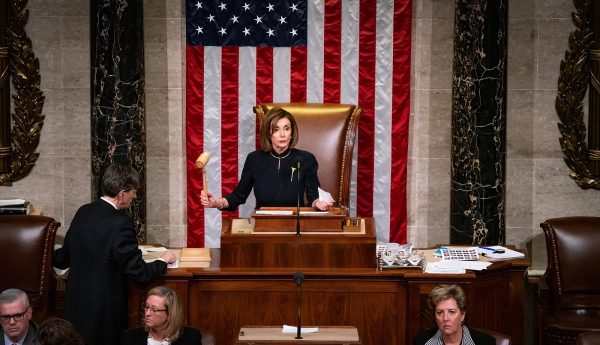
Congressional Democrats are pitching their H.R. 1 “For the People Act” as a necessary salve for a broken electoral system. If enacted, they claim, the bill’s provisions will fix a broken campaign finance system, protect voting rights, and make the average American feel once again like they can trust the system we use to select our leaders.
Truthfully, it doesn’t do any of those things but they’re hoping no one catches on. Or because they fear being called “racist” or worse for failing to fight “voter suppression,” won’t fight. That’s unfortunate, at least for the GOP – whose strategy to stop the bill depends on the filibuster – because it’s a bad bill that would keep the Democrats in power almost in perpetuity.
Among its many outrageous provisions is one that would essentially vitiate state laws requiring voters to produce some form of government-issued photo ID before being allowed to vote. To most Americans, that’s a commonsense kind of thing, backed by 75 percent of likely voters in one recent poll.
Look at the facts. We’re asked to show ID every day, whether we’re trying to get on an airplane, make a bank deposit, or enter a federal government building. Democrats say, without offering a convincing explanation as to why it’s so, that asking the same of voters at a polling place would be racist and constitute voter suppression rather than protect the constitutional guarantee of “one person, one vote.”
The American public isn’t buying the criticism, something Red State Democrats like Joe Manchin of West Virginia, Arizona’s Mark Kelly and Kyrsten Sinema, and Montana’s Jon Tester should be thinking about when Senate Majority Leader Chuck Schumer of New York tries to twist their arms and get them to vote for the bill. There is room for a principled objection to the bill because voters still back the idea that a valid photo ID must be shown before a ballot can be cast by overwhelming margins.
A recent Rasmussen Reports national telephone and online survey found 75 percent of likely voters agreed voters should have to show a valid driver’s license or some other form of government-issued identification before they could cast a ballot. Less than a quarter of all those surveyed – just 21 percent – said they were opposed.
When an issue has nearly 80 percent support, a smart politician just stands next to it. As it now stands, on top of the near-universal support it has nationally, 36 states have some form of voter ID law that would be nullified to one degree or another if H.R. 1 – which passed the House with only Democrat support — becomes law.
In its analysis, Rasmussen reports said, “Support for voter ID laws has actually increased since 2018, when 67 percent (of likely voters surveyed) said voters should be required to show photo identification such as a driver’s license before being allowed to vote.”
Voter ID laws are strongly backed by Republicans, with 89 percent saying they support making people prove who they are before they can cast a ballot alongside 77 percent of non-affiliated voters and, remarkably, 60 percent of Democrats sharing that view. The party in Congress, it seems, is out of touch with its rank and file.
As to the claim that voter ID laws are discriminatory, Rasmussen Reports says, voters, reject it by a margin of nearly 2-to1 as “60 percent say laws requiring photo identification at the polls don’t discriminate.” Just under a third, 31 percent, said they do while 10 percent were not sure either way. Unsurprisingly, a bare majority of Democrats – 51 percent – say such laws do discriminate 79 percent of Republicans and 67 percent of independents said they did not. Somewhat shockingly, the pollster said, “Voters under 40 support voter ID laws more than do older voters” as do most whites (74 percent), blacks (69 percent), and other minorities (82 percent).
The abolition of voter identification requirements is but one of several odious provisions contained within H.R. 1 that would, many analysts have claimed, make it harder to prevent election fraud in the future.
Other provisions contained within the legislation would mandate same-day registration in all 50 states, expand early voting that in some states runs into months rather than weeks or days, and establish rules for handling ballots that would essentially codify the practice of ballot harvesting some states have already made illegal.